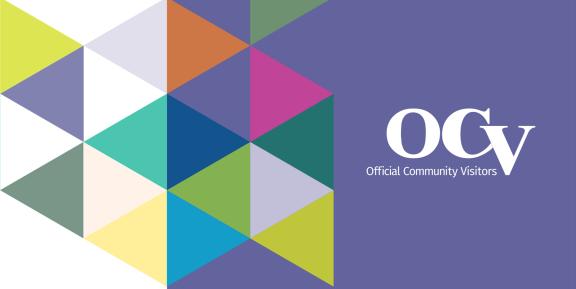Official Community Visitors upholding the interests of children in residential care
Steve's update: Earlier this week my team attended the conference of the Official Community Visitors scheme, held in Sydney.

I’ve often spoken in these updates about the need for systems and organisations to work together, creating networks of safety around our more vulnerable citizens – and the Official Community Visitors scheme is a great example.
Official Community Visitors are appointed by the Minister for Families, Communities and Disability Services to visit supported accommodation services that provide full-time care in NSW – including children and young people in residential out-of-home care and people with disability in supported accommodation.
Each community visitor deserves our thanks for their work to improve the experience of people, including children and young people, in residential care.
The annual conference is an opportunity for these independent, community representatives from across the state to meet in person, and share their experiences with regulators and stakeholders in the various services they attend.
Their powers under the Ageing and Disability Commissioner Act 2019 and the Children’s Guardian Act 2019 allow them to enter and inspect residential services without notice. They can talk in private with any resident or person employed at the service, as well as inspect documents.
- More about Official Community Visitors
- Official Community Visitors Annual Report 2022-23 (PDF, 3.5 MB)
For children and young people in residential out-of-home care, Official Community Visitors provide an additional level of transparency and community perspective to complement the accreditation and monitoring work of the Office of the Children’s Guardian.
Our work with communities of practice continues with meetings this month of the roundtable on responding to historical reportable conduct allegations and the child safe community of practice for the religious sector.
Meeting in mid-May, the roundtable progressed its work on 2 resources to guide our work for better outcomes and processes:
- Handling historical reportable allegations
- Reportable conduct investigations and the NSW Police Force
These fact sheets will provide guidance for organisations covered by the Reportable Conduct Scheme about handling common issues and challenges associated with the investigation of historical reportable allegations.
Finally, yesterday we hosted the third meeting of the religious sector community of practice. We focused on how the 10 Child Safe Standards apply in their varied settings and the group shared good practice examples.
As the group’s work progresses, I will work with them to expand our reach within the sector so that all faith groups can be made aware of their obligations under the NSW Child Safe Scheme.
Steve Kinmond OAM
Children's Guardian
